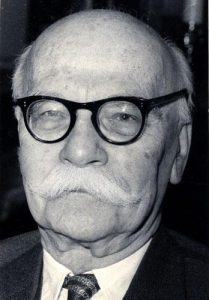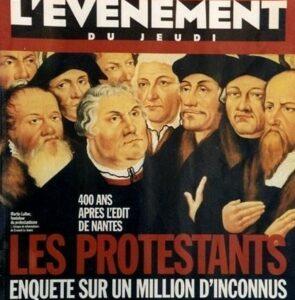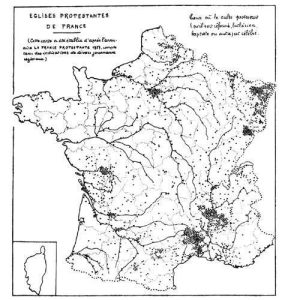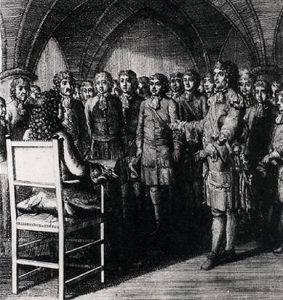A complex period
The attitude of Protestantism towards the events in public life over these past decades should be approached with caution. The history of former centuries has been written and that of the first half of the 20th century is known, but that of the years after World War II is still being debated, even though it has been extensively studied. Despite the complex aspects of this period, some trends can be discerned.
The sociology of French Protestantism shows the continuity of the ‘historical’ Protestantism of the Reformed and Lutheran Churches. But a number of evangelical trends also appeared, some finding a place in the French Protestant Federation, and others not.
Studies on Protestant voting have shown a wide range of political attitudes as witnessed by the internal debates on a number of important events in the second half of the 20th century, such as decolonisation, attitudes towards the Second Vatican Council, the events of May 1968, and deregulation of economic trade.
Confronted by these many changes, some chose a pragmatic approach, others the critical approach of contentious Protestantism, sometimes arguably called “leftist” Protestantism in the 1960s ; which has progressively faded.
During the last part of the century in which ecumenism and the Second Vatican Council, have been major events, the influence of Protestantism has changed. The old idea of the protestantisation of France became fashionable again, but actually illustrated the perfect integration of Protestants in French society.






